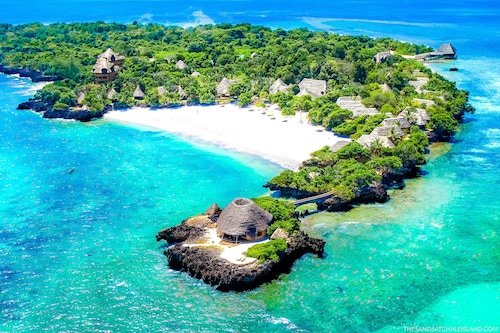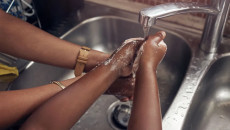- Wasini is a fossilized coral outcrop and therefore lacks any natural freshwater springs or rivers.
- Economic prospects are similarly limited. The economy of the island heavily depends on tourism, mainly day visits to the Kisite-Mpunguti Marine Park.
Wasini Island, located off the southern coast of Kenya, is a picture-postcard image of gently swaying palms, turquoise seas, and dhows sailing silently. Guests arrive in search of peace and abundant sea life, without knowledge of the silent strife that characterizes everyday existence for the island's stoic inhabitants.
Behind the idyllic veneer exists a population that is struggling with elemental difficulties, foremost among them the lack of a life-giving resource: fresh water.
Unlike the mainland, Wasini is a fossilized coral outcrop and therefore lacks any natural freshwater springs or rivers. Rainwater harvesting is the most important source, but erratic rainfall, an increasing worry as climate patterns shift, regularly leaves cisterns empty.
Households, and especially women and children, spend hours collecting water from a few shared boreholes, commonly brackish or awaiting costly deliveries from the mainland. This everyday search for water affects all aspects of life, from personal hygiene to agriculture, constraining the island's prospects for self-sufficiency.
Economic prospects are similarly limited. The economy of the island heavily depends on tourism, mainly day visits to the Kisite-Mpunguti Marine Park. Although this generates some revenue, it's vulnerable to international travel patterns, seasonal variation, and external surprises.
For residents not directly engaged in tourism, traditional fishing is a lifeline, but overfishing and the effects of climate change on marine ecosystems jeopardize catches, rendering livelihoods ever more insecure.
Development of infrastructure falls far behind. There are no cars or roads on Wasini; transportation is on foot along winding coral trails or by wheelbarrow. This seclusion, while adding to its attraction, also presents obstacles to basic services.
Access to medical care is restricted. For more complicated diseases and sophisticated medical care the inhabitants visit the private and state clinics at the mainland in Shimoni, Msambweni and Mombasa.
They can reach these places by matatu. Private car taxis can also be called, but are mostly used by tourists because for the locals they are too expensive.
For short distances also the taxi-motorbike, the piki-piki, can be rented. Educational services, while available, are frequently under-resourced, and youth must make difficult decisions between remaining on the island with curtailed opportunities or pursuing possibilities elsewhere.
In spite of these daunting challenges, the Wavumba community of Wasini has not lost its spirit. Their deeply ingrained Swahili heritage, close-knit relationships, and an unshakeable attachment to their island home give them an incredible resilience.
They improvise, innovate, and still greet guests with warm smiles, personifying the indomitable strength of a people living graciously within their stunning, yet difficult, island existence.












